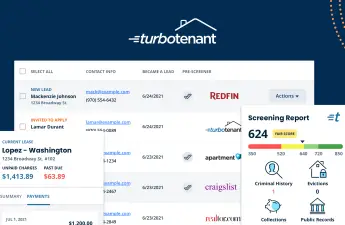In the real estate industry, understanding the nuances of property valuation is vital. For most independent landlords like ourselves, Net Operating Income (NOI) stands as a cornerstone.
NOI represents the income generated from a property after accounting for operating expenses but before deducting taxes and interest payments. In the context of property valuation for sale, NOI plays a pivotal role as it provides a clear picture of a property’s financial performance and potential profitability.
NOI valuation serves as a fundamental tool for both buyers and sellers alike. For prospective buyers, it offers insights into the income-generating capability of a property, helping in informed decision-making regarding investment feasibility. On the other hand, for sellers, a good NOI valuation can enhance marketability, facilitating negotiations and ensuring fair pricing.
In this article, we take a closer look at how to find the net operating income and discuss the significance of NOI valuation in property transactions, shedding light on its role in determining the true worth of real estate assets.
![]() Also Read: How to Increase NOI and Boost Rental Property Income
Also Read: How to Increase NOI and Boost Rental Property Income
The Integral Role of NOI in Property Valuation
NOI significantly influences various property valuation methods. One such method is the income capitalization approach, where NOI serves as a critical input. By dividing the NOI by the capitalization rate, which reflects the rate of return an investor requires, this approach estimates the property’s value.
Essentially, the higher the NOI, the greater the property’s value under this method. Therefore, NOI directly impacts property value estimations, highlighting its key role in the valuation process.
Moreover, NOI plays a pivotal role in determining the investment value of a property to potential buyers. For investors, the NOI serves as a key metric to evaluate the income-generating potential and profitability of the property. A higher NOI suggests greater cash flow and, consequently, a more attractive investment opportunity.
Potential buyers heavily consider NOI when making purchase decisions, as it directly influences the property’s perceived investment value and return on investment potential.

NOI’s Impact on Market Perception and Property Desirability
The figures representing NOI not only serve as financial metrics but also carry significant weight in shaping market perception. Potential investors keenly scrutinize NOI figures as indicators of a property’s financial health. A higher NOI often signals good income generation and efficient management, enhancing the property’s attractiveness to investors.
On the other hand, a lower NOI might raise concerns about the property’s viability and potential profitability, potentially dampening market desirability. Therefore, NOI figures play a pivotal role in shaping market perception and influencing investor confidence and interest in a particular property.
A property with a strong NOI is inherently more desirable to investors, as it signifies stable income streams and promising returns on investment. In competitive markets where multiple properties compete for investor attention, those with higher NOI figures often enjoy a distinct advantage. Investors prioritize properties with healthy NOI levels, recognizing them as valuable assets capable of delivering consistent income and long-term appreciation.
The Relationship Between NOI and Property Sale Price
There is a direct correlation between Net Operating Income and the sale price of a property. Changes in NOI often prompt corresponding adjustments in the property’s listed sale price. A higher NOI typically translates to increased property value, as it signifies stronger income potential and enhanced profitability for potential buyers. Therefore, properties with higher NOI figures often command higher sale prices, reflecting their perceived value in the market.
On the contrary, a decline in NOI may lead to a decrease in the property’s sale price, as it suggests diminished income-generating capabilities and potentially lowers the property’s overall attractiveness to buyers.
Moreover, NOI figures serve as a foundational element in buyer and seller negotiations during property transactions. Buyers closely analyze NOI data to assess the property’s income-generating potential and determine its investment value. On the other hand, sellers leverage strong NOI figures to justify higher sale prices and negotiate favorable terms.
Negotiations often revolve around NOI projections, with both parties aiming to strike a balance that reflects the property’s true worth in terms of income potential and market demand. Therefore, NOI figures play a pivotal role in shaping the negotiation process and ultimately influencing the sale price of the property.
NOI’s Role in Financial Analysis and Risk Assessment
Lenders extensively rely on NOI when evaluating financing or refinancing proposals. By analyzing a property’s NOI, lenders can gauge its income-generating potential and assess the borrower’s ability to generate sufficient cash flow to meet loan obligations.
A strong NOI indicates a property’s ability to generate consistent income, reducing the lender’s risk and increasing the likelihood of loan approval. On the other hand, a lower NOI might raise concerns about the property’s ability to generate adequate income to support loan repayment, potentially affecting financing terms or eligibility.
Furthermore, NOI plays a pivotal role in assessing the financial risk and stability of an investment property. Investors use NOI as a key indicator to evaluate the property’s financial performance and profitability. A higher NOI generally signifies lower financial risk, as it indicates strong income streams and potential for returns on investment. Whereas a lower NOI may signal increased financial risk, possibly indicating lower income potential or higher operating expenses.
Understanding Market Trends Through NOI
NOI serves as a valuable tool for analyzing market trends and understanding the broader economic landscape within the real estate sector. Fluctuations in NOI can provide insightful indicators of prevailing market conditions and economic dynamics.
When NOI experiences upward trends across multiple properties or sectors, it often reflects good economic growth, increased demand for real estate assets, or improved operational efficiencies. On the other hand, downturns in NOI may signify economic slowdowns, shifts in market demand, or challenges within specific sectors, prompting investors to reevaluate their strategies and asset allocations.
Moreover, NOI trends hold significant predictive value, offering insights into future property market movements. By analyzing historical NOI data alongside other economic indicators, investors can identify emerging trends and anticipate shifts in market dynamics.
Rising NOI across a particular market segment, for instance, may predict increased property values and heightened investor interest in the area. In contrast, declining NOI figures could indicate potential challenges or vulnerabilities within the market, prompting stakeholders to exercise caution or explore alternative investment opportunities.
NOI Valuation: Landlord Gurus Takeaway
Net Operating Income plays a critical role in shaping property valuation and influencing the sales process. From affecting valuation methods to its impact on market perception and property desirability, NOI serves as a crucial indicator of a property’s financial health and investment potential. Its direct correlation with property sale prices highlights its significance in determining market value.

Disclosure: Some of the links in this post are affiliate links and Landlord Gurus may earn a commission. Our mission remains to provide valuable resources and information that helps landlords manage their rental properties efficiently and profitably. We link to these companies and their products because of their quality, not because of the commission.




